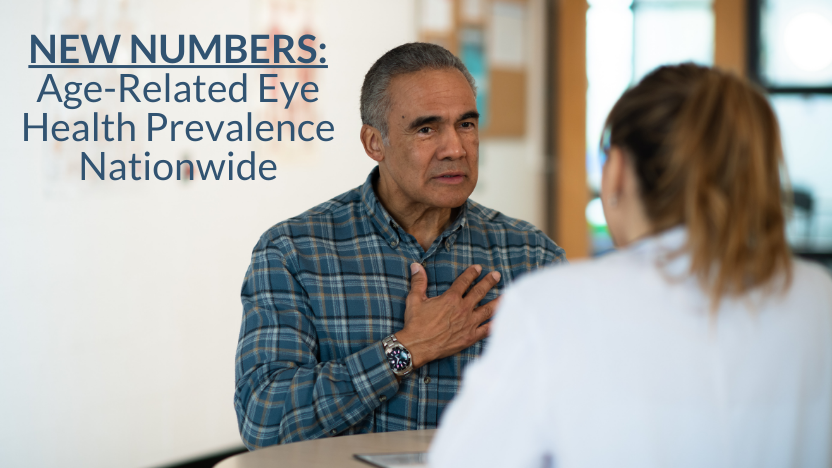Age-Related Eye Health Issues: More Prevalent Than You Think
Posted by EyePromise on Nov 23rd 2022
When it comes to eye health, one of the scariest things for a patient to hear is “You have age-related eye health issues.” Why? Because that means that their central vision is deteriorating, and their only option is to slow down or stop the worsening of that deterioration. For years, the estimated number of Americans suffering with age-related eye health issues was thought to be around 11 million (both early and advanced stages). However, a recent study published in Journal of American Medical Association Ophthalmology revealed a new and more alarming number.
Why These Numbers Matter

Age-related eye health issues are a leading cause of vision loss and blindness for people over 50 years old. It’s been over 10 years since these numbers have been reevaluated in the U.S. Additionally, the numbers for early age-related eye health prevalence are inadequate and inconsistent. For this particular study, authors were looking to “produce estimates of early- and late-stage [age-related eye health] prevalence overall and by age, gender, race and ethnicity, county, and state.”
How the Researchers Determined the Numbers
Authors used the Bayesian meta-regression analysis method to review the data regarding the prevalence of age-related eye health issues within different population groups throughout the country. Included in the research were:
- The 2019 American Community Survey
- The 2005-2008 National Health and Nutrition Examination Survey
- U.S. Centers for Medicare & Medicaid Services claims for fee-for-service beneficiaries in 2018
- 2004-2016 population-based studies
- All relevant data from the Centers for Disease Control and Prevention’s Vision and Eye Health Surveillance System
Here Are the New Numbers

In short, the researchers discovered that while late-stage age-related eye health estimates were more accurate, the prevalence of early-stage age-related eye health was higher than originally thought. They defined early-stage as “retinal pigment epithelium abnormalities or the presence of drusen 125 or more microns in diameter in either eye” and late-stage as “choroidal neovascularization and/or geographic atrophy in either eye.”
Authors estimate 18.34 million people 40 years and older are living with early-stage age-related eye health issues, translating to a 11.64% prevalence rate. For late stage, they estimate 1.49 million people 40 years and older, translating to a 0.94% prevalence rate. These rates vary by demographics and geography.
EyePromise® Offers a Solution
EyePromise knows the importance of early intervention when it comes to age-related eye health issues. That’s why EyePromise Restore was created. This innovative eye health nutraceutical is specifically designed to reduce risk factors associated with age-related eye health issues. Its formulation is packed with natural ingredients that have been clinically proven to help protect and enhance vision, especially for patients 40 years and older.
One of the key benefits of EyePromise Restore is its level of dietary zeaxanthin. Zeaxanthin is the carotenoid chosen by the eye to protect central vision and is very scarce in the average American diet. To sustain a healthy retina, patients need to ingest at least 8 mg of dietary zeaxanthin, and Restore delivers that in just one softgel. With a recommended 2-softgel-a-day dose, EyePromise Restore is guaranteed to increase a patient’s macular pigment optical density (MPOD) in 6 months or their money back.
Age-related eye health issues continue to be a growing concern for eye care professionals and patients alike. With the help of EyePromise Restore, you can intervene before your patients’ vision is in jeopardy. To start offering your patients an early intervention strategy, have an EyePromise Regional Account Manager contact you.


